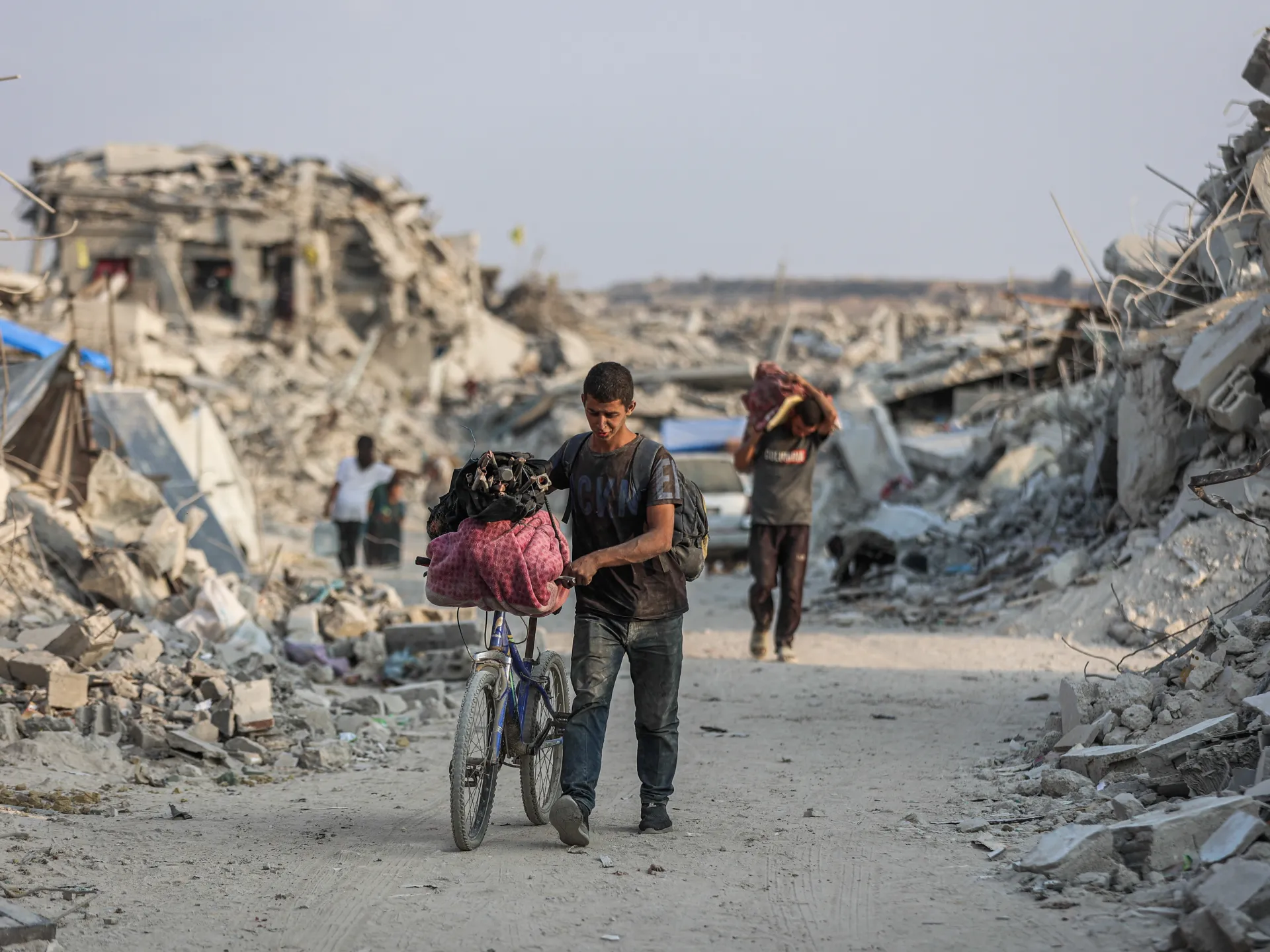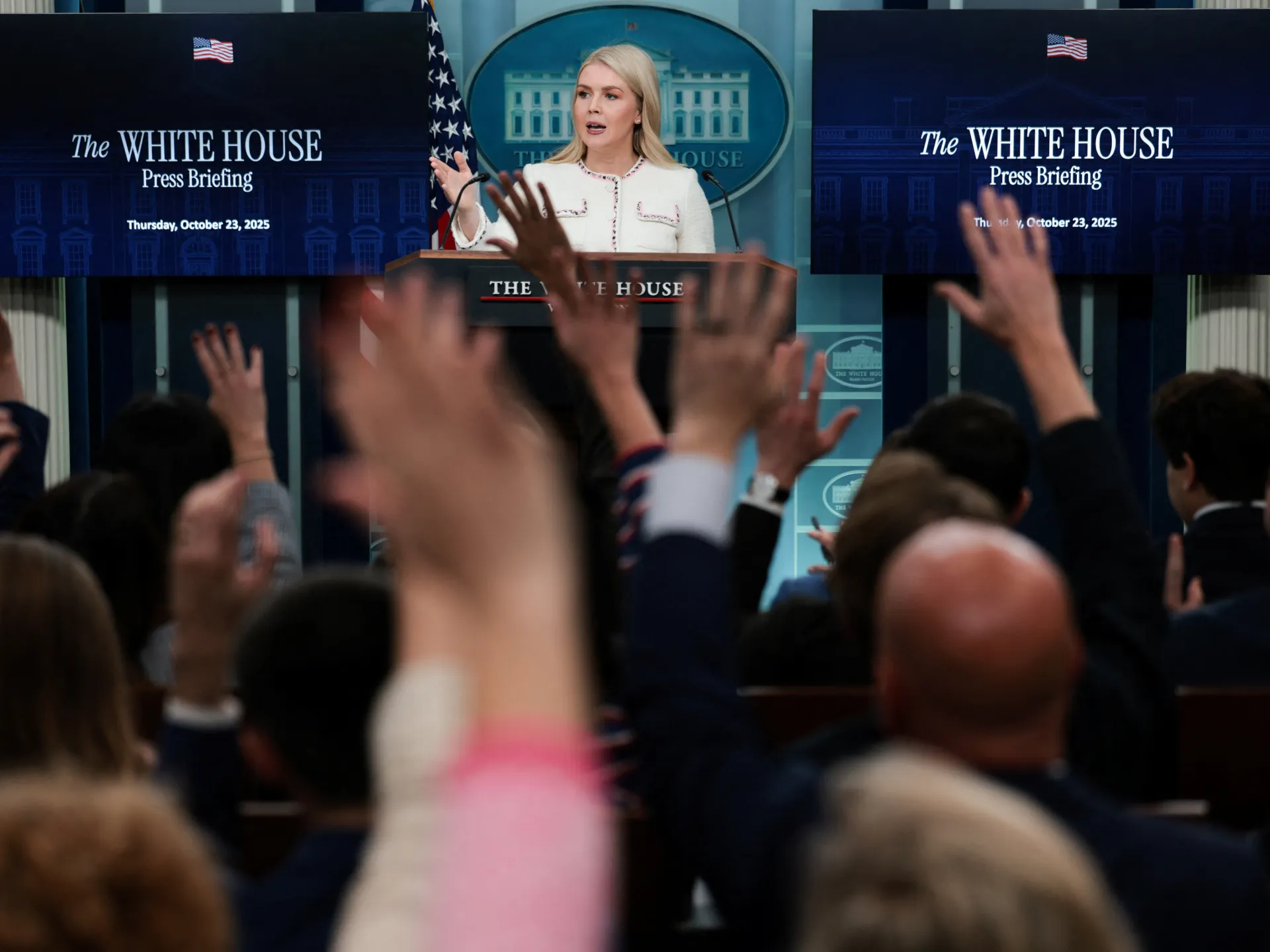UN warns Gaza aid still too slow as Israel restricts supplies despite truce | Gaza News
Despite some progress in delivering food to Palestinians in the besieged Gaza Strip, the enclave – ravaged by Israeli bombardment and racked by hunger – remains in urgent need of humanitarian assistance, the United Nations has said.
The UN and its partners have been able to get 37,000 metric tonnes of aid, mostly food, into Gaza since the October 10 ceasefire, but much more is needed, UN spokesperson Farhan Haq told reporters on Friday.
Recommended Stories
list of 3 itemsend of list
“Despite significant progress on the humanitarian scale-up, people’s urgent needs are still immense, with impediments not being lifted quickly enough since the ceasefire,” Haq said, citing reports from the UN’s humanitarian service, OCHA.
Haq was critical that entry of humanitarian supplies into Gaza continues to be limited to only two crossings – the al-Karara (also known as Kissufim) and Karem Abu Salem (Kerem Shalom) crossings.
There is no direct access to northern Gaza from Israel or to southern Gaza from Egypt, while NGO staff are being denied access, he said.
Earlier this week, the UN said it had distributed food parcels to one million people in Gaza since the ceasefire, but warned it was still in a race to save lives.
The UN’s World Food Programme stressed all crossing points into the Gaza Strip should be opened to flood the famine-hit territory with aid, adding that no reason was given for why the northern crossings with Israel remained closed.
Palestinians across Gaza continue to face shortages of food, water, medicine and other critical supplies as a result of Israeli restrictions.
Many families also lack adequate shelter as their homes and neighbourhoods have been completely destroyed in Israel’s two-year military bombardment.
Chris Gunness, the former spokesperson for UNRWA, the Palestinian refugee agency, said Israel is committing a war crime by blocking aid to Gaza.
Speaking to Al Jazeera, Gunness noted that tens of thousands of Palestinians – mainly children – remain at risk of malnutrition. He also said that if Israel doesn’t meet its obligation “to flood the Gaza Strip with humanitarian aid”, then third-party countries must act.
“Israel has made it clear that it wants to commit a genocide against the Palestinians, it wants to ethnically cleanse them, and it wants to starve them,” he said.
Captive’s body returned
The ceasefire between Israel and Hamas came into effect on October 10, after both sides agreed to a United States-brokered 20-point plan aimed at ending the war. But since it was announced, Israel has repeatedly launched attacks, killing dozens of people, with its forces remaining in more than 50 percent of the territory.
More than 220 Palestinians have been killed since the ceasefire took effect, according to the Ministry of Health in the enclave.
Israel has also been carrying out a wave of demolitions in parts of Gaza under its continued control east of the so-called yellow line, where Israeli forces are stationed.
The latest demolitions on Friday included residential buildings east of Khan Younis in southern Gaza, according to Al Jazeera reporters in the Strip.
Meanwhile, Prime Minister Benjamin Netanyahu’s office confirmed Israel received from the Red Cross the remains of one of the last six captives held by Hamas in Gaza.
The Israeli military later confirmed that a coffin containing the deceased captive’s body had “crossed the border into the State of Israel” after being delivered by the Red Cross.
It said the body was being sent to a forensic facility in Tel Aviv for identification.
At the start of the truce, Hamas’s armed wing, the Qassam Brigades, released all 20 surviving captives. In return, Israel freed hundreds of Palestinian political prisoners, including the bodies of slain Palestinians from Gaza, many showing signs of torture.
Of the 28 deceased Israeli captives that Hamas agreed to hand over under the deal, it has so far returned 22 – 19 Israelis, one Thai, one Nepali and one Tanzanian – excluding the latest body.
The last six deceased captives include five seized on October 7, 2023 – four Israelis and one Thai – as well as the remains of a soldier who died in 2014 during one of Israel’s previous assaults on Gaza.
Israel has accused Hamas of dragging its feet in returning the bodies of deceased captives. The Palestinian group says it continues to press for proper equipment and support to comb through vast mounds of rubble and debris – where some 10,000 Palestinians killed in Israeli bombardments are still buried.
More than 68,000 Palestinians have been killed during Israel’s two-year war.

